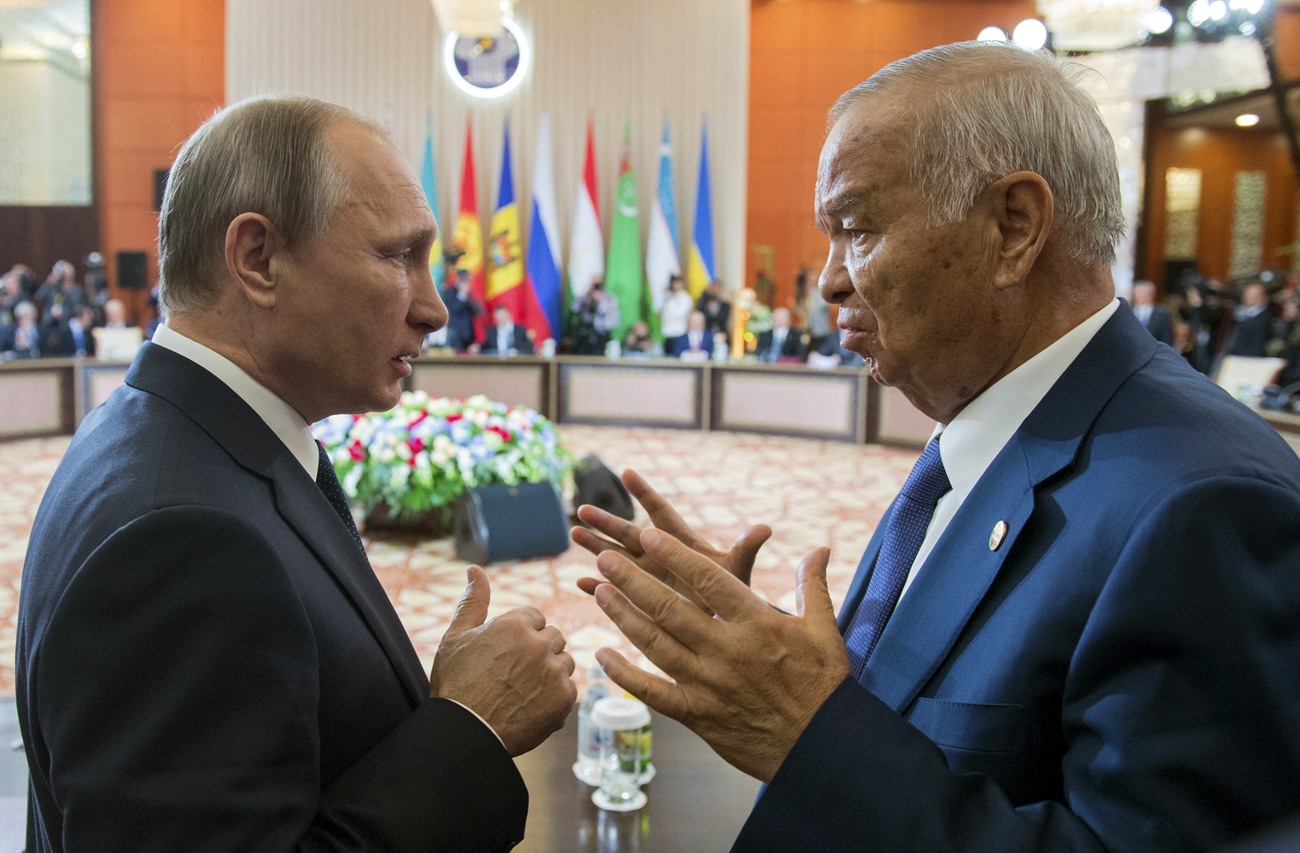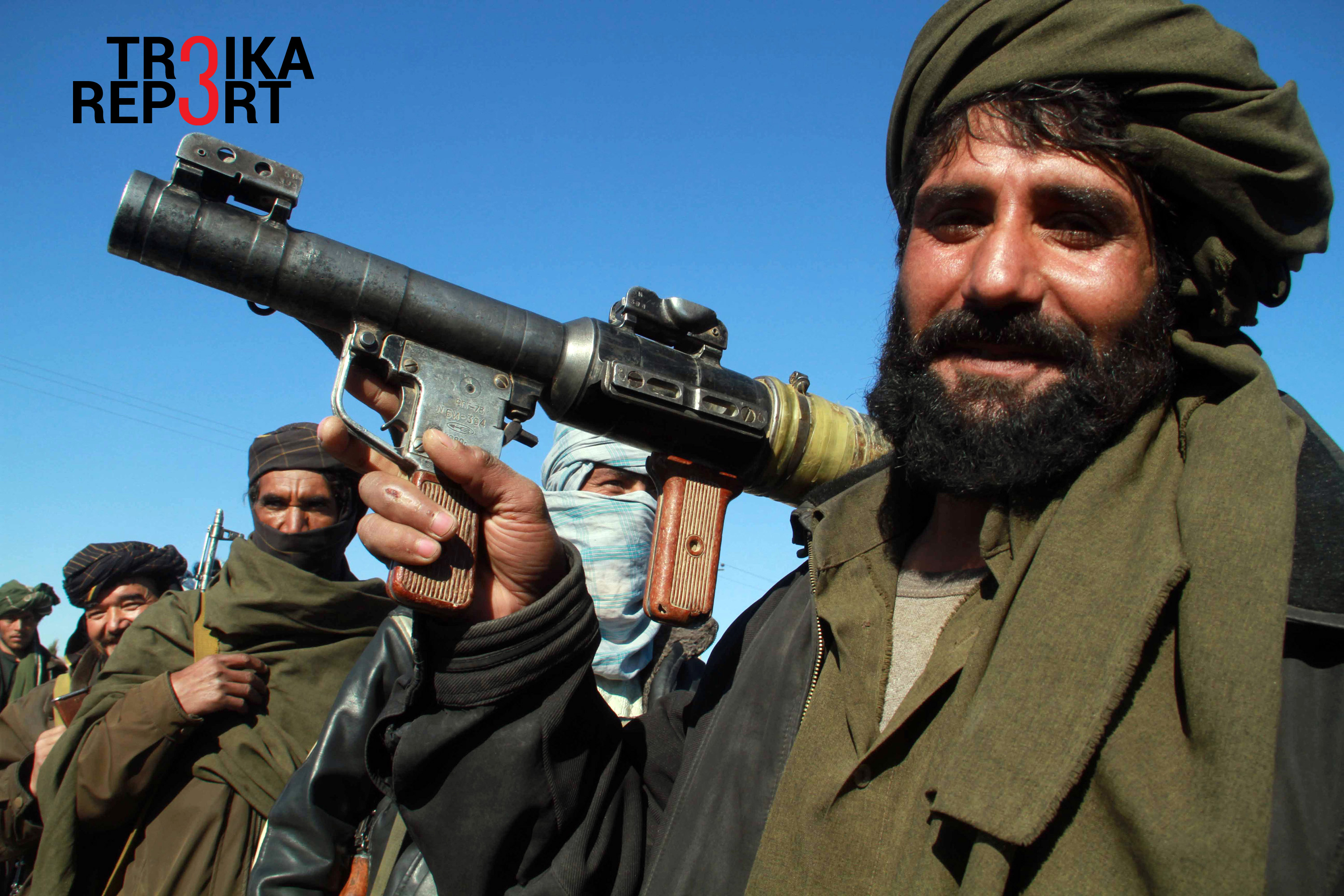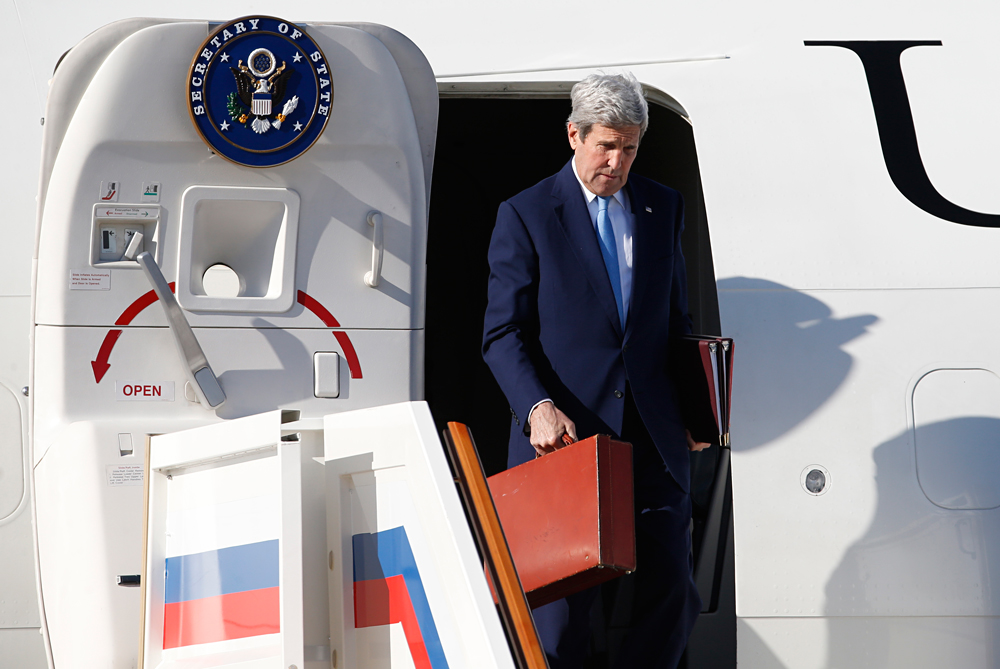Mortality calls: How the death of Central Asian leaders will affect Russia

Uzbekistan's President Islam Karimov (R) talks to Russian President Vladimir Putin during a meeting of ex-Soviet leaders in Burabai, Kazakhstan, on Oct. 16, 2015.
ReutersSince the end of the Soviet Union, most of Central Asia has lived in a kind of political stasis, with three out of the region’s five republics having been ruled by the same man for well over two decades, and another seeing a change of power only when the incumbent died in office.
However, as these leaders enter their senior years change is inevitable, bringing with it a risk of upheaval and instability in a region considered dangerously exposed to Islamic fundamentalism.
On Aug. 29 the normally secretive Uzbek government revealed that the country's president Islam Karimov had been hospitalized. Lola Karimova-Tillyayeva, daughter of the 78-year-old politician who has presided over an increasingly brutal and repressive regime in Uzbekistan for more than 26 years (since it was still the Uzbek Soviet Socialist Republic), later posted a family photo on Instagram, writing that Karimov had suffered a stroke and was in the hospital's reanimation department.
That evening the Russia-based Fergana publication, which specializes in Central Asian affairs, reported that the aged politician had died. Tashkent officially denied this information and Russian presidential press secretary Dmitry Peskov stated that the Kremlin believes Karimov is alive. However, experts note that even if Uzbekistan's president is still alive, his days in power are coming to an end.
The Stalin model
Kontantin Zatulin, director of the Institute of CIS countries, compares the situation in Uzbekistan with the state of affairs in 1953 when Joseph Stalin was dying in the USSR.
"The struggle for power began when Stalin was still alive, even though he was stricken with paralysis. I think something similar is happening in Uzbekistan: The elite is determining who will replace Karimov," he said.
Zatulin believes that in Uzbekistan Karimov had practically unlimited power, but he did not have a clear successor. "The main defect of autocratic regimes like Karimov's is that despite all the stability, they are vulnerable in terms of succession."
In his opinion, this also concerns, albeit to different degrees, other Central Asian countries – namely Kazakhstan and Tajikistan. Sooner or later these countries will have to face the same problem that Uzbekistan is facing: The change of elites after the departure of their "eternal" rulers.
An explosive potential
The problems that Uzbekistan will face after Karimov are serious and rather typical for the region, according to Irina Zvyagelskaya, professor at the Moscow State Institute of International Relations, who names radical Islamism, extremism and “a high percentage of youths combined with a traditional way of life, poverty and unemployment" among the issues with the potential to destabilize the country.
Since Central Asia directly borders Afghanistan, where the Taliban and Islamic State are active, there is a danger that terrorists will take advantage of the changes that will arise after the current elites depart to infiltrate the region.
In the opinion of Konstantin Zatulin, who fears that militants from Afghanistan may be able to reach Russia via Central Asia, Uzbekistan in particular happens to be the most problematic country from the viewpoint of the diffusion of Islamic fundamentalism: "The Uzbeks, who are a sedentary people, have a harsher and more radical form of Islam than, for example, the migratory Kazakhs."
A hope for compromise
Russian experts believe that the Central Asian countries will be able to handle the problems facing the region only with a stable government. In the view of Irina Zvyagelskaya, the elites must demonstrate an ability to agree.
"I think that the elite groups will reach some kind of compromise," said Zvyagelskaya about the situation in Uzbekistan, recalling that in neighboring Turkmenistan after the death of President for Life Saparmurat Niyazov in 2006 the elites were able to quickly find a candidate who could accommodate everyone, Gurbanguly Berdimuhamedow.
Stability is everything for Russia
Konstantin Zatulin affirms that Russia is extremely interested in stability in Central Asia, which is why it will support those leaders who will demonstrate the capacity to guarantee this stability. For Moscow it is not important who exactly will come to power after Karimov, Nursultan Nazarbayev (president of Kazakhstan since 1990) and Emomali Rahmon (president of Tajikistan since 1994), as long as these people preserve stability in their countries.
However, as Irina Zvyagelskaya pointed out, Russia does not have many ways to influence Central Asia except for political support: "Because of the crisis we cannot boast about large volumes of investment or joint enterprises. China is the main foreign player in the region and for now we cannot compete with it as equals," she said.
In her opinion, Russia's biggest advantage in its relations with the Central Asian republics is that a large number of emigrants from these countries live and work in Russia. "This affinity must be supported and developed," she said.
Read more: 5 Soviet infrastructure projects that survived the Afghan wars>>>
Subscribe to get the hand picked best stories every week
All rights reserved by Rossiyskaya Gazeta.
Subscribe
to our newsletter!
Get the week's best stories straight to your inbox

